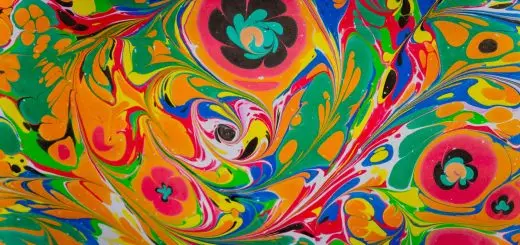What Is the Connection Between Intuition and Mindfulness?

Looking for more amazing products? Check out our online store and explore our collection here! Happy shopping!
Before diving in, please note: This post is for informational purposes only. If you’d like to know more about how we approach topics, feel free to check out our friendly Disclaimer Page.
Hey there, amazing readers! 
We’re committed to delivering quality posts, and your support (even just sticking around despite the ads) means everything to us. So, bear with us, and thanks for helping us keep the good vibes rolling. Now, on to the fun stuff!
TRANSLATE BUTTON AT THE END OF THE ARTICLE
A Quick Overview
Have you ever had a gut feeling about something?
Maybe you were deciding whether to take a new job or perhaps you sensed that something was off in a conversation.
These moments of insight stem from what we call intuition.
Now, what if I told you that being mindful could actually enhance this intuitive process?
That’s right!
Intuition and mindfulness share a fascinating connection that can guide our daily lives.
In this article, we will explore both concepts, their underlying science, and practical ways to cultivate them in our everyday routines.
So, grab a cup of tea, and let’s dive in!
Understanding Intuition: An Insightful Overview
Intuition is often described as a quick, instinctive feeling or thought that arises without the need for conscious reasoning.
Think of it as your internal compass, guiding you in situations where logic might seem insufficient.
Have you ever made a snap decision only to later realize it was the right choice?
That’s intuition at work.
There’s a lot more to intuition than meets the eye.
It’s like having an internal database, built from past experiences, knowledge, and emotions.
When faced with a new situation, your mind taps into this database and offers you a gut feeling about the best course of action.
Interestingly, intuition is not just the realm of the mystics.
Psychologists suggest that our brains process information on both conscious and subconscious levels.
The subconscious mind is constantly assessing and analyzing environmental cues, often leading to those intuitive “aha” moments.
For many, intuition feels like a sixth sense.
It can arise in various forms—some might feel a physical sensation, while others experience it as a sudden thought or idea.
Regardless of how it manifests, the essence of intuition is its ability to provide insight without overt analysis.
However, intuition can be influenced by factors like stress, emotional turmoil, or even distractions.
In such cases, it might be harder to trust those gut feelings.
This is where mindfulness comes into play, helping to clear the mental fog and enhance our intuitive faculties.
What Is Mindfulness? Exploring Its Core Principles
Mindfulness is all about being fully present in the moment, paying attention to your thoughts and feelings without judgment.
Imagine savoring the taste of your morning coffee, fully absorbed in the experience rather than rushing through it.
That’s mindfulness.
At its core, mindfulness encourages us to observe our thoughts and feelings as they arise, rather than getting caught up in them.
This practice fosters self-awareness, helping us better understand our emotional landscape.
For instance, when we feel anxious, mindfulness allows us to acknowledge that anxiety without letting it take control.
Unlock your potential with the Advanced Intuition Training Course – start here.
Mindfulness has roots in ancient meditation practices, but modern psychology has embraced it for its numerous mental health benefits.
Research shows that practicing mindfulness can lower stress, improve focus, and enhance overall well-being.
It’s like giving our mind a mini-vacation from the chaos of daily life.
So, how can we incorporate mindfulness into our routine?
Simple practices like deep breathing, mindful walking, or even eating can help.
The key is to remain engaged with the present moment, allowing our thoughts to come and go without clinging to them.
Ultimately, mindfulness creates a mental space that can sharpen our intuitive instincts.
When we practice being present, we’re more attuned to our inner voice, making it easier to recognize those gut feelings.
The Science Behind Intuition and Mindfulness
Both intuition and mindfulness are grounded in fascinating psychological and neurological research.
Studies indicate that intuition often stems from the brain’s ability to recognize patterns based on past experiences.
The more we engage with our surroundings, the better we become at making quick assessments.
Neuroscience provides insight into how our brain processes intuitive thoughts.
The right hemisphere is often linked to intuitive thinking, while the left hemisphere is associated with analytical reasoning.
When faced with a decision, the brain activates both hemispheres, allowing intuitive insights to emerge alongside logical analysis.
On the other hand, mindfulness alters the brain in significant ways.
Research has shown that regular mindfulness practice can increase gray matter density in areas related to emotional regulation, self-referential thought, and perspective-taking.
This means we become better equipped to handle our emotions, which is crucial when trusting our intuition.
Additionally, mindfulness helps reduce activity in the amygdala, the brain’s emotional center.
This reduction can lead to a decrease in anxiety and overthinking, allowing our intuitive feelings to surface more freely.
All this science highlights the beauty of combining intuition and mindfulness.
By enhancing our intuitive abilities through mindfulness practices, we can make more informed decisions that align with our true selves.
How Intuition Guides Our Daily Decisions
Every day, we make countless decisions, some small, others life-changing.
Intuition plays a significant role in guiding those choices.
Think about the last time you met someone new.
Did you trust your instincts about them?
That initial "vibe" often comes from intuitive judgments.
Intuitive decision-making often occurs when time is limited, or when we face overwhelming options.
In such moments, our intuition can simplify the process, allowing us to pick a path that resonates with us.
For example, choosing between two job offers can be daunting.
Trusting your gut can help you pick the one that feels right, freeing you from analysis paralysis.
Many successful individuals emphasize the importance of intuition in their careers.
Steve Jobs, for instance, famously stated that intuition is more powerful than intellect.
He relied on instincts to guide product development, leading to groundbreaking innovations.
However, it’s crucial to remember that intuition is not infallible.
It can be influenced by biases and previous experiences.
Practicing mindfulness can help us sift through those biases, allowing our intuition to shine without distortion.
By incorporating mindfulness into our decision-making process, we can better recognize and trust those intuitive nudges.
This combination leads to decisions that align with our values and aspirations.
Cultivating Mindfulness: Techniques to Practice Daily
Cultivating mindfulness doesn’t require hours of meditation.
In fact, there are simple techniques to integrate mindfulness into our daily lives:
Deep Breathing: Take a moment to breathe deeply.
Focus on your breath, feeling the air fill your lungs.
This helps ground you in the present.
Mindful Eating: Savor each bite of your meal.
Notice the flavors, textures, and aromas.
This practice enhances appreciation and can improve digestion.
Nature Walks: Take a walk in nature, paying attention to the sights and sounds around you.
This reconnects us with the world and promotes calmness.
Gratitude Journaling: Write down things you’re grateful for each day.
This practice shifts focus from negativity to appreciation, fostering a positive mindset.
Body Scan: Lie down comfortably and mentally scan your body for tension.
Acknowledge any discomfort without judgment and breathe into those areas.
Incorporating these practices into your daily routine can help cultivate mindfulness.
Start small—perhaps a few minutes of deep breathing each morning.
As you build this habit, you’ll likely find yourself more present and aware throughout the day.
The Role of Mindfulness in Enhancing Intuition
Mindfulness plays a significant role in honing our intuitive abilities.
When we quiet our minds, we can better connect with our inner voice.
This connection makes it easier to recognize intuitive signals when they arise.
By practicing mindfulness, we learn to distinguish between genuine intuitive feelings and thoughts clouded by anxiety or external pressures.
For instance, when faced with a decision, we can pause to check in with ourselves. “Is this feeling coming from a place of fear or is it a true gut instinct?”
Moreover, mindfulness fosters emotional regulation.
When we’re mindful, we become more aware of our emotional responses.
This awareness allows us to assess whether those emotions are influencing our intuitive judgments.
Research supports this connection—mindfulness practices have been shown to enhance emotional intelligence, which plays a crucial role in intuitive decision-making.
The more we understand our emotions, the better we can trust our intuitive responses.
In essence, mindfulness creates a fertile ground for intuition to flourish.
By nurturing our ability to be present, we enhance our capacity to listen to our gut feelings.
Recognizing Intuitive Signals in Everyday Life
Recognizing intuitive signals can feel like a treasure hunt.
It’s all about tuning into subtle cues within ourselves.
Here are some common intuitive signals to look out for:
Physical Sensations: Do you feel a tightness in your chest or a flutter in your stomach?
These bodily reactions can signal your intuition.
Inner Voice: Listen for that quiet voice in your head.
It often speaks the truth when you’re faced with a decision.
Dreams: Sometimes, our subconscious communicates through dreams.
Pay attention to recurring themes or messages.
Emotional Responses: Notice how you feel about a decision.
Does it bring joy or discomfort?
These feelings can guide you.
Being mindful helps us tune into these signals.
When we take the time to slow down, we can better identify and trust our intuition.
Practice recognizing these signals in everyday scenarios.
For instance, if you’re contemplating a social invitation, check in with yourself.
Does the idea excite you or drain you?
Trust that initial feeling—it often holds the key.
Mindfulness Practices That Boost Intuitive Thinking
Let’s explore some mindfulness practices specifically designed to boost intuitive thinking:
Meditation: Regular meditation quiets the mind, allowing intuitive insights to surface.
Start with just a few minutes a day.
Journaling: Free writing can help you tap into your thoughts and feelings.
Write without judgment, and see what intuitive insights emerge.
Visualization: Picture a scenario you’re facing.
Close your eyes and envision how you’d feel in different outcomes.
This can clarify your intuition.
Mindful Listening: Engage in conversations with full attention.
This practice fosters empathy and may unveil intuitive insights about others and yourself.
Integrating these practices into your routine can enhance your intuitive abilities.
It’s all about creating space to listen to that inner voice.
The Connection Between Gut Feelings and Mindfulness
Many people describe their intuition as a “gut feeling.” This phrase emphasizes the physical aspect of our intuition, as it often manifests in our bodies.
But what’s the connection between these gut feelings and mindfulness?
Mindfulness helps us cultivate awareness of our bodies.
By tuning into physical sensations, we can better recognize those gut feelings.
When we practice mindfulness, we become attuned to the subtle cues our bodies send us—like a signpost pointing us toward the right path.
Research shows that our gut, or the enteric nervous system, is often referred to as the “second brain.” It processes emotions and communicates with our brain.
When we experience stress or anxiety, it can directly influence our gut feelings.
Mindfulness helps regulate this connection, allowing us to trust those intuitive signals.
So, the next time you experience a gut feeling, take a moment to pause.
Practice mindfulness by checking in with your body.
What is it trying to tell you?
Real-Life Examples of Intuition and Mindfulness
Let’s look at some real-life examples that illustrate the connection between intuition and mindfulness.
For instance, consider a person faced with a career change.
Initially overwhelmed by the decision, they practice mindfulness through meditation and journaling.
This practice helps them quiet their anxieties and listen to their gut.
Ultimately, they trust their instinct to pursue a passion project instead of staying in a job that no longer fulfills them.
Another example involves a couple buying a home.
While touring properties, they practice mindful communication, openly discussing their feelings about each place.
When they encounter a house that feels “just right,” they trust that intuitive feeling, which leads to a happy purchase.
In both cases, mindfulness played a crucial role in enhancing their intuitive insights.
By being present and aware, they could make decisions aligned with their true selves.
Overcoming Obstacles in Developing Intuition
Like any skill, developing intuition comes with its share of challenges.
Here are some common obstacles and suggestions to overcome them:
Self-Doubt: It’s easy to doubt our intuition, especially if we’ve made poor choices in the past.
Remind yourself that your intuition is a valuable guide, not a fixed path.
Fear of Failure: The fear of making the wrong decision can cloud our intuitive judgment.
Embrace the idea that every choice is a learning opportunity.
Distractions: In our fast-paced world, distractions abound.
Create a mindful space—whether through meditation or time in nature—to listen to your inner voice.
External Pressures: Sometimes, we feel pressured to conform to others’ expectations.
Mindfulness can help us reconnect with our authentic selves and trust our intuition.
By acknowledging and addressing these obstacles, we can navigate our intuitive journey with greater confidence.
Embracing the Journey: Intuition Meets Mindfulness!
As we wrap up this exploration, it’s important to remember that the connection between intuition and mindfulness is an ongoing journey.
Each day presents opportunities to practice and deepen our understanding of ourselves.
By cultivating mindfulness and honing our intuition, we empower ourselves to make choices that resonate with our authentic selves.
This journey may not always be straightforward, but it’s incredibly rewarding.
So, let’s embrace the beautiful dance between intuition and mindfulness.
Trust your gut, be present, and enjoy the adventure of self-discovery.
Conclusion
In summary, intuition and mindfulness are powerful allies in our decision-making processes.
By understanding and practicing both, we can navigate life’s challenges with clarity and confidence.
Remember, intuition is not a mystical force; it’s a natural part of being human.
Cultivate mindfulness, and you’ll find that your intuition becomes a reliable compass, guiding you toward choices that align with your true self.
So go ahead, trust your gut, and enjoy the journey ahead!

The Enlightenment Journey is a remarkable collection of writings authored by a distinguished group of experts in the fields of spirituality, new age, and esoteric knowledge.
This anthology features a diverse assembly of well-experienced authors who bring their profound insights and credible perspectives to the forefront.
Each contributor possesses a wealth of knowledge and wisdom, making them authorities in their respective domains.
Together, they offer readers a transformative journey into the realms of spiritual growth, self-discovery, and esoteric enlightenment.
The Enlightenment Journey is a testament to the collective expertise of these luminaries, providing readers with a rich tapestry of ideas and information to illuminate their spiritual path.
Our Diverse Expertise
While our primary focus is on spirituality and esotericism, we are equally passionate about exploring a wide range of other topics and niches 

To ensure we provide the most accurate and valuable insights, we collaborate with trusted experts in their respective domains 
Our blog originally focused on spirituality and metaphysics, but we’ve since expanded to cover a wide range of niches. Don’t worry—we continue to publish a lot of articles on spirituality! Frequently visit our blog to explore our diverse content and stay tuned for more insightful reads.
Hey there, amazing reader! 
Check out our store here and take a peek at some of our featured products below! Thanks for being awesome!













